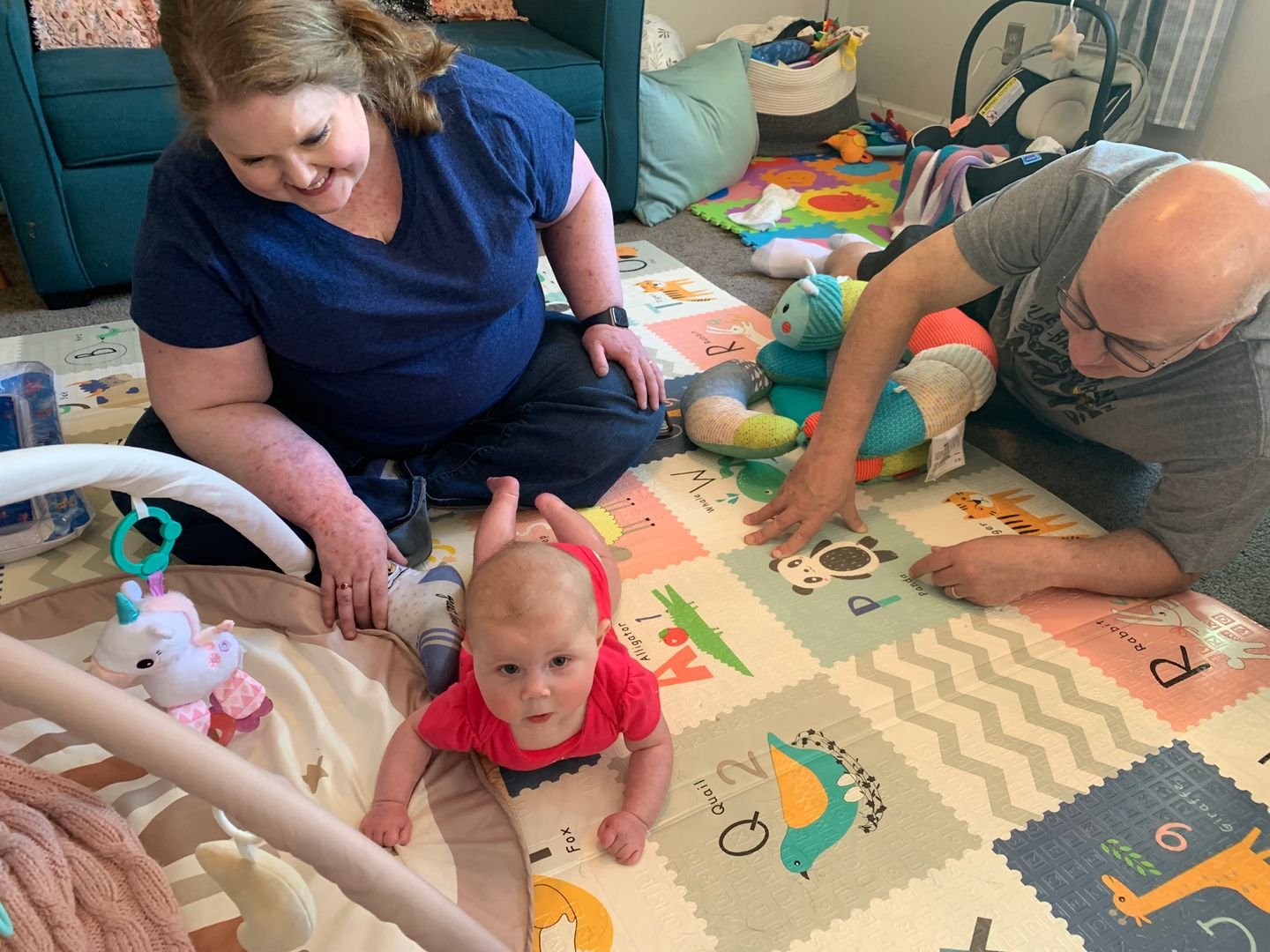One of the best parts of post-transplant life—having nieces!
It’s the end of Donate Life month, and I’ve realized that a lot of people don’t know how transplants actually work. As in, I think a lot of people think that you have the transplant and….that’s it! Poof! Magic!
As much as I wish it were Poof! Magic!, it’s not quite that simple.
The big barrier for transplant wasn’t the actual surgery; surgeons knew how to do that part. The issue was keeping the body from destroying a foreign object, ie, the donated organ (s).
Your immune system is exquisitely calibrated. It knows what’s “you” and what isn’t you, and that’s why it works—it fights things that aren’t you (ie, pathogens) so that you don’t get sick. It likes to kill things that don’t belong, and while that’s great when it’s germs it’s killing, it’s not so great when it’s a vital organ.
So transplants couldn’t happen until immunosuppressive drugs were found. These drugs do what their name says—they suppress the immune system, basically hacking it so that it doesn’t work as well, which means it doesn’t try to kill the thing that “isn’t you”, but is keeping “you” alive. When the body tries to kick out the transplanted part, that’s called rejection. (Rejection is complicated, and there are different types. I’m trying to keep this simple, so I’m just calling it all rejection.)
Your chances for rejection are highest immediately after transplant. At this point in my post-transplant life, rejection isn't really a huge concern. Bu right after, it definitely is the highest concern. So the immunosuppressive meds are at their highest doses immediately post-transplant, and in the years following. As you get father out, the meds decrease.
I’m on three types of medications, broadly:
Prograf (tacrolimus), aka, “tac.” This is my immunosuppressant. I will take it the rest of my life. When I first had my transplant, I was on a higher dose than I am now, and I was also on another immunosuppressant, which we dropped many years ago now.
Steroids, which are also immunosuppressive. I am on five milligrams of prednisone, and I will be on that for the rest of my life. Doctors are now starting to experiment with taking people off steroids a few years post-transplant. We tried that with me, but my body did not cooperate. (My body likes steroids, because I have CF related arthritis. Steroids make joints happy!)
Prophylactic antibiotics, meaning, I’m taking these not because I’m sick, but so I don’t get sick. I take azithromycin (if you’e had a Z-pack, you’ve had this med) every day. I like to compare myself to a chlorinated pool.
I also take a few other things that aren’t directly related to transplant/immunosuppression.
Now, keep in mind that we have to “hack” my immune system on a daily basis so that it won’t figure out that my lungs aren’t mine. That’s what these drugs do. I will take them forever and ever, amen.
It is a delicate dance—we want to keep my immune system in the dark, so to speak, but we also don’t want it to be so suppressed that I’m getting every single germ that’s out there. That’s not good.
At this point, what my team and I are worried about treating are the side effects of these medications. If you hack your immune system for seventeen plus years, as we’ve done for me, it’s going to….well, not work right! This puts me at a much higher risk of cancer, especially skin cancer, which is why I see my dermatologist for a full body check every six months, and why I check myself over regularly and am very aware of anything strange that pops up on my skin. (I’m going to my doctor on Friday, actually, to get a spot checked out. Better safe than sorry.) I am diabetic because of the meds. The meds cause other side effects, too, which vary from person to person.
But if you stop taking these meds, BAD THINGS WILL HAPPEN.
And this isn’t just transplant meds. I lost my hearing because of ototoxic (toxic to the ear) medications pre-transplant. We needed strong IV antibiotics to keep me alive, and that has the effect of me losing my hearing and needing my cochlear implant. But, that’s what I chose. (Now, CF doctors are working to be more cognizant of this, yay! I like!) Chemotherapy is probably the best known treatment that causes a lot of side effects that are not, to put it mildly, great.
But these are the choices we make to stay alive.
I’m on many fewer meds than I was at the beginning. At the beginning of my transplant life, I was on four antibiotics daily—now it’s one. I was on at least 40 milligrams of steroids—now it’s 5.
All of this is a big part of why finding the best possible donor match is so imperative. The closer the match is, the lower your dose of suppression can be, because we don’t have to “hack” it as much. I am very lucky that I have a very good match.
So, that’s how transplants work! If you have any questions, drop them below and I’ll try to answer them as best I can! :)
